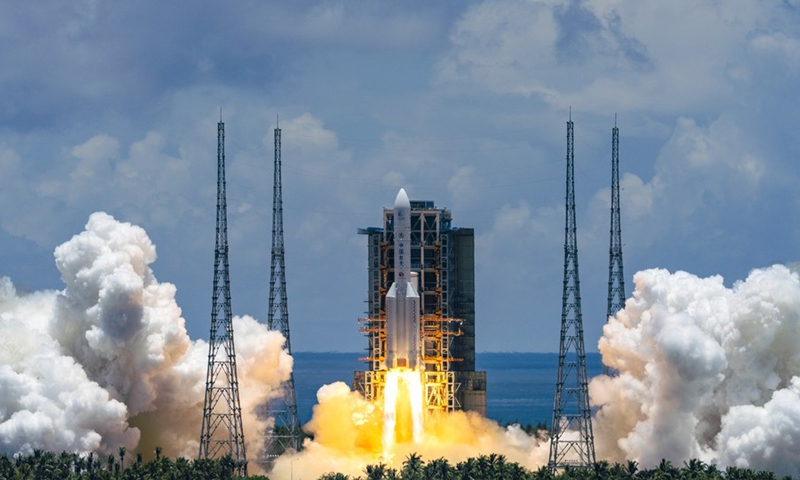Heating Up The Space Race
"Several times a year [the U.K. sees evidence of] questionable [activity on the part of Russia and China such as flying satellites within] close proximity [of others, along with more] dangerous activity [that might destroy other satellites].""[Over the past year, Russia deployed satellites which] we would describe as having the characteristic of a weapon and they practised a manoeuvre that we would say could only have been done to deliberately destroy another satellite.""[China practised against] their own redundant satellites, demonstrating the ability to do it.""A future conflict may not start in space, but I'm in no doubt that it will come very quickly to space, and it may well be won or lost in sp,ace.""If we don't think, and prepare for that today then we won't be ready when the time comes."British Air Chief Marshal Sir Mike Wigston"The space domain is vital, not just in enabling military operations across the world, but in the day-to-day lives of everyone across the nation."Air Vice Marshal Paul Godfrey, commander, U.K. Space Command
 |
| Photo: IC |
Not only does space provide "critical capabilities" to the military, added General Sir Patrick Sanders, head of Strategic Command, stressing the disruptive implications a space war would conceivably hold for civilians and soldiers alike, but technology is enabled in the way that "we all recognize on our mobile phones enabling us to navigate the Carrier Strike Group around the globe."
These alarming statements of perceived reality serving as warning to the West and placing Russia and China on notice took place at the launch of Space Command, RAF High Wycombe, staffed by the RAF, British Army, Royal Navy and the civil service as a new joint force.
It is meant to provide command and control of space capabilities when it reaches full operating capacity. This would include the U.K.'s Space Operations Centre, RAF Flyingdales in North Yorkshire and SKYNET, military communications satellites. This new-age-technology-and-space unit is to focus on sharing information on developing threats in the space arena.
The use of ground-based and space-based radars will be part of the operation, along with information gathering "from other like-minded allies". Minister for Defence Procurement Jeremy Quin, explained that investment in space was "vital to maintain a battle-winning advantage across this fast-evolving operational domain".
To which General Sir Patrick Sanders added the aim of the unit is to maintain a satellite network which "can move data around seamlessly" and to garner "intelligence, surveillance and reconnaissance from space. Those are the sort of capability areas that we're looking at. The starting point is to understand what's up there and get the basics right".
In which case they're right in their heads-up for Chinese and Russian aggression extending from Earth to space. As crowded and competitive are matters on terra firma with both countries contesting geographical hegemony, space too is becoming increasingly crowded with competing interests and new initiatives being unveiled constantly from aspiring nations such as India, Israel, United Arab Emirates, alongside space probes by the EU, NATO, Russia and China among others.
 |
| A Mars probe is launched on a Long March-5 rocket from the Wenchang Spacecraft Launch Site in south China's Hainan Province, July 23, 2020. (Xinhua/Cai Yang) |
Labels: China, Russia, Space, Space Militarization, United Kingdom

<< Home